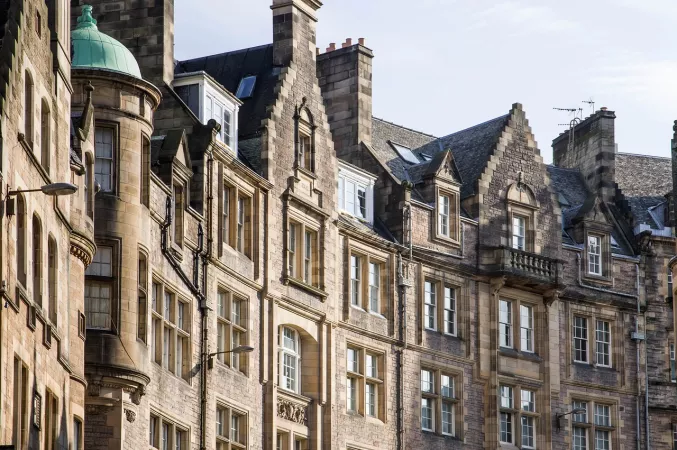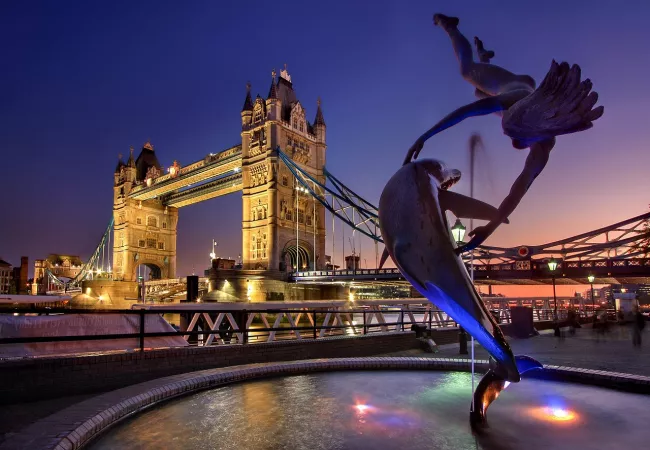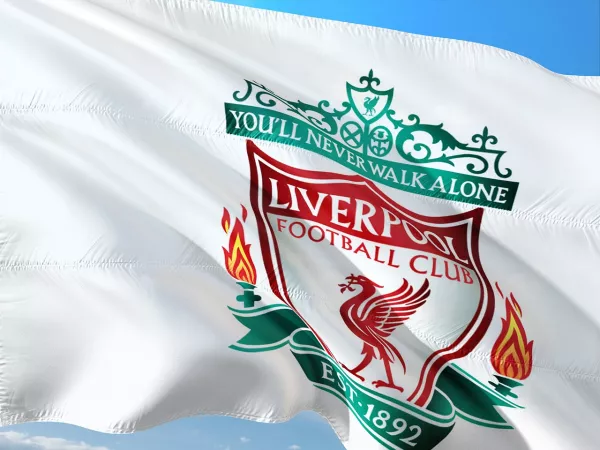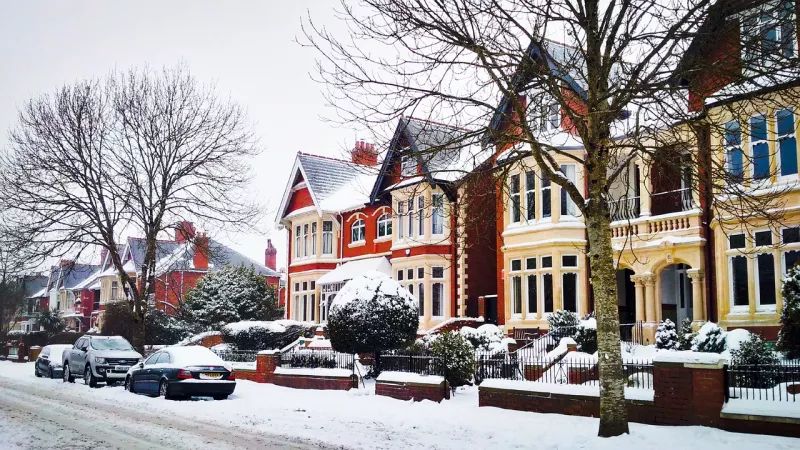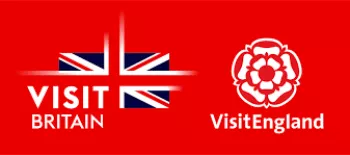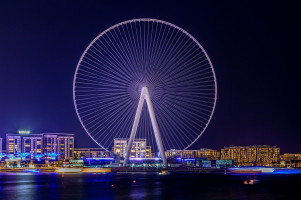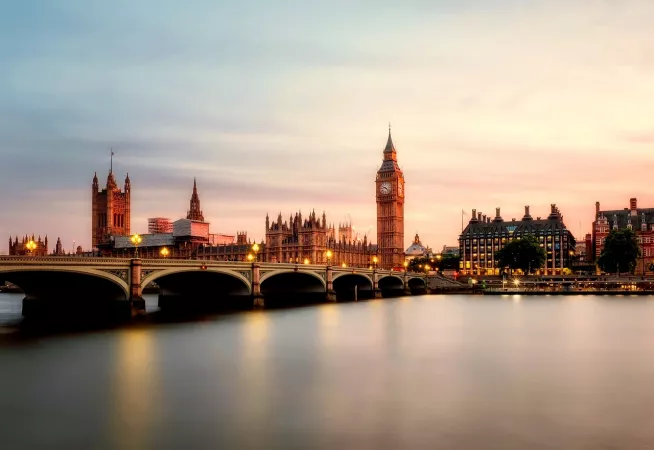
United Kingdom
Duration
7 to 14 Days
7 to 14 Days
Best time to visit
May-Aug
May-Aug
Theme
Heritage
Heritage
United Kingdom Travel Guide
The United Kingdom is a diverse and fascinating country located in Northwestern Europe. With a rich history that spans centuries, stunning landscapes, vibrant cities, and a unique culture, the UK is a popular destination for travelers from around the world. The United Kingdom is famous for its iconic landmarks such as Big Ben, Buckingham Palace, Stonehenge, and the Tower of London. Visitors can also explore charming villages, beautiful countryside, and enjoy traditional British cuisine.Top Attractions in United Kingdom
- Big Ben and the Houses of Parliament
- The British Museum
- Edinburgh Castle
- Stonehenge
- The Lake District
United Kingdom is Famous for
Castles and historic landmarks.Top Attractions in United Kingdom
- Exploring the vibrant city of London
- Visiting historic castles and palaces
- Enjoying traditional afternoon tea
- Exploring the stunning landscapes of Scotland
- Immersing yourself in the rich history and culture of the UK
What's Great about Travelling to United Kingdom?
- Rich history and culture
- Diverse landscapes
- Iconic landmarks
- Traditional British cuisine
What's Not So Great about Travelling United Kingdom?
- Expensive destination
- Variable weather
- Crowded tourist attractions
- High cost of living
Travel Tips for United Kingdom
- Check visa requirements before traveling
- Use public transportation to get around
- Be aware of pickpockets in tourist areas
- Respect local customs and traditions
Important United Kingdom trip information
- Ideal Duration: 2-3 weeks
- Best Time to Visit: Summer months (June-August)
- Nearby Airports and Railway Stations: Heathrow Airport, Gatwick Airport, King's Cross Station
Top 11 Places to visit in United Kingdom
Per Person
2,00,000
*EXCLUDING APPLICABLE TAXES 5.0 Ratings
( 57 Reviews )
( 57 Reviews )
Per Person
54,999
*EXCLUDING APPLICABLE TAXES 5.0 Ratings
( 118 Reviews )
( 118 Reviews )
Total
7,25,000
*EXCLUDING APPLICABLE TAXES 5.0 Ratings
( 20 Reviews )
( 20 Reviews )
Per Person
49,000
*EXCLUDING APPLICABLE TAXES 4.2 Ratings
( 38 Reviews )
( 38 Reviews )
Per Person
49,000
*EXCLUDING APPLICABLE TAXES 4.2 Ratings
( 38 Reviews )
( 38 Reviews )
Total
3,09,500
*EXCLUDING APPLICABLE TAXES 5.0 Ratings
( 20 Reviews )
( 20 Reviews )
FAQ's on United Kingdom
Q1: What is the best time to visit United Kingdom?
The best time to visit the United Kingdom is during the summer months from June to August when the weather is generally mild and many outdoor events take place. However, spring (March to May) and autumn (September to November) also offer pleasant weather and beautiful landscapes. Winter (December to February) can be cold but provides a magical experience, especially during the holiday season. Consider tourist seasons and events like the Edinburgh Festival in August or Christmas markets in December when planning your visit.
Q2: Do I need a visa to travel to the United Kingdom?
Tourists from many countries, including the US, Canada, Australia, and EU nations, do not need a visa for visits up to 6 months. However, visa requirements vary based on nationality and the purpose of the visit. It is important to check the UK government website for the most up-to-date information on visa requirements and any exceptions. Make sure your passport is valid for the duration of your stay and meets other entry requirements.
Q3: What are the must-visit attractions in the United Kingdom?
The United Kingdom is home to iconic landmarks such as Big Ben, Buckingham Palace, the Tower of London, and Stonehenge. Explore the historic cities of London, Edinburgh, and Bath, visit the picturesque countryside of the Lake District or Cotswolds, and discover the stunning landscapes of the Scottish Highlands or the beaches of Cornwall. Don't miss cultural attractions like the British Museum, Tate Modern, and the Edinburgh Castle. Enjoy traditional afternoon tea, explore charming villages, and immerse yourself in the rich history and diverse culture of the UK.
Q4: Is the United Kingdom a safe place to travel?
The United Kingdom is generally a safe destination for travelers. However, like any other country, it is important to be vigilant, especially in crowded tourist areas and public transportation. Some areas, particularly in major cities, may have higher crime rates, so it's advisable to stay alert and take precautions such as keeping your belongings secure and avoiding poorly lit areas at night. Follow local advice and guidelines, and in case of emergency, contact the appropriate authorities or your embassy.
Q5: What is the local currency in the United Kingdom and can I use credit cards?
The currency in the United Kingdom is the British Pound Sterling (£). ATMs are widely available in cities and towns, and credit cards are widely accepted in most establishments, including hotels, restaurants, and shops. However, it's always a good idea to carry some cash, especially in smaller towns or for small purchases. Notify your bank of your travel plans to avoid any issues with card usage abroad, and consider carrying a mix of payment methods for convenience.
Q6: What is the local cuisine like in the United Kingdom?
British cuisine is diverse and reflects the country's history and cultural influences. Enjoy traditional dishes like fish and chips, Sunday roast, shepherd's pie, and English breakfast. Explore the vibrant food scene with international cuisine, street food markets, and Michelin-starred restaurants. Don't miss out on trying afternoon tea with scones and clotted cream or indulging in a pint at a cozy pub. Dietary preferences are catered to with vegetarian, vegan, and gluten-free options widely available. Embrace the culinary delights of the UK and savor the flavors of this gastronomic destination.
Q7: What transportation options are available in the United Kingdom?
The United Kingdom has a well-developed transportation network that includes trains, buses, trams, and the London Underground (Tube). Travel between cities is convenient with frequent train services, and buses connect smaller towns and rural areas. Taxis and ride-hailing services are available in urban centers, while renting a car provides flexibility for exploring the countryside. In London, the Tube is an efficient way to navigate the city, along with buses and taxis. Consider purchasing an Oyster card for discounted travel fares in London. Plan your journey in advance, check for any disruptions, and enjoy the convenience of getting around the UK.
Q8: Are there any cultural norms or etiquette I should be aware of when visiting the United Kingdom?
When visiting the United Kingdom, it is important to respect local customs and etiquette. Britons are known for their politeness, so saying "please" and "thank you" is appreciated. Queuing (standing in line) is a common practice, so be patient and wait your turn in shops, attractions, and public transport. Tipping is customary in restaurants, bars, and for services like taxis, usually around 10-15% of the total bill. When dining, it's polite to keep your hands on the table, use utensils, and avoid discussing sensitive topics like politics or religion. Dress modestly when visiting religious sites or formal occasions, and always ask for permission before taking photos of people. By respecting local customs, you can have a pleasant and culturally enriching experience in the UK.
Q9: I am a travel agent. How can I buy travel leads of United Kingdom?
Register yourself as a travel agent at agents.tripclap.com and then you can buy travel leads to United Kingdom once your account is approved. For more details contact our support team at +91-8069186564 or support@tripclap.com
